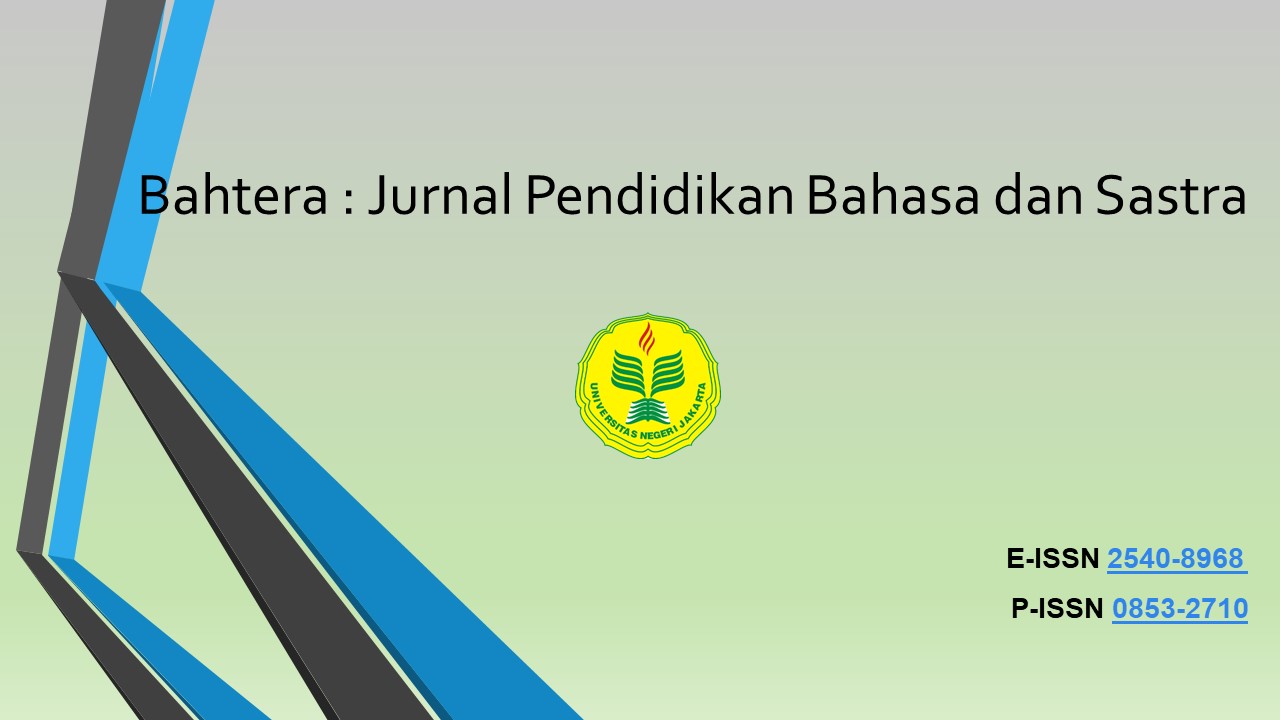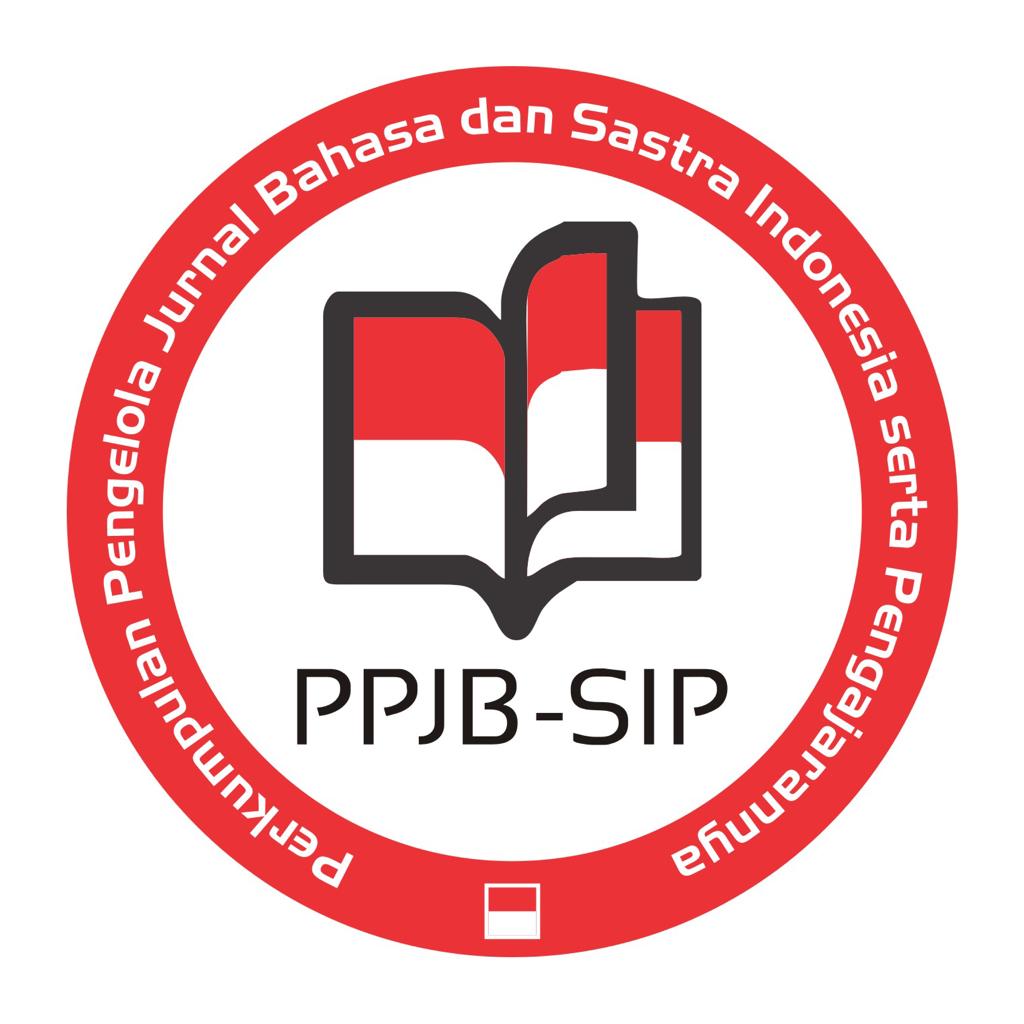EVALUATIVE LANGUAGE IN THE DISCOURSE OF CEBONG VS KAMPRET (‘TADPOLE VS MICROBATS’) ON TWITTER
DOI:
https://doi.org/10.21009/bahtera.191.01Keywords:
evaluative language; discourse; appraisal; TwitterAbstract
As an interactive social media, Twitter gives significat role in creating social systems. Evaluative language was intensively used on the social media. The Cebong vs Kampret issue coloured on Twitter and polarized people. By using data Tweet and Reply from Twitter during 2019 this researcher investigates evaluative language. This research results that Twitter community were very emotionally force and defense on the Cebong vs Kampret issue, depicted from many evaluative languages classified into subsystem attitude. Subsystem graduation was also intensively used in accordance to that issue. It means that Twitter community emphasized on semantic scale in evaluating things and person.
References
Asher, N., Benamara, F., & Mathieu, Y. Y. (2009). Appraisal of Opinion Expressions in Discourse. International Journal of Linguistics and Language Resources, 32(2), 279–292. https://doi.org/10.1075/li.32.2.10ash
Bednarek, M. (2006). Evaluation in Media Discourse: Analysis of a Newspaper Corpus(book). London: Continuum.
Fensi, F. (2019). Paradoxic Language “Cebong-Kampret” in Facebook as a Mirror of the Political Language of Indonesia. Bricolage: Jurnal Magister Ilmu Komunikasi, 5(2), 103–120.
Gales, T. (2011). Identifying interpersonal stance in threatening discourse: An appraisal analysis. Discourse Studies, 13(1), 27–46. https://doi.org/10.1177/1461445610387735
Gunarwan, A. (2007). Pragmatik: Teori & Kajian Nusantara. Jakarta: Penerbit Universitas Atma Jaya.
Hamid, A., Darwis, & Andriyani, S. (2018). Fenomena Politik Cebong dan Kampret di Indonesia: Sebuah Analisis... Jurnal Politea, I(1), 29–36.
Hofstede, G. (2001). Culture’s Consequences: Comparing Values, Behaviours, Institutions, and Organizations Across Nations. In Sage Publications (Second). https://doi.org/10.1002/ejoc.201200111
Hyland, K., & Tse, P. (2005). Evaluative that constructions: Signalling stance in research abstracts . Functions of Language, 12(1), 39–63. https://doi.org/10.1075/fol.12.1.03hyl
McGue, M., & Bouchard, T. J. (1998). Genetic and Environmental Influences on Human Behavioral Differences. Annual Review of Neuroscience, 21(1), 1–24. https://doi.org/10.1146/annurev.neuro.21.1.1
Rahyono, F. X., Sutanto, I., Rachmat, R., & Puspitorini, D. (2005). Kearifan Dalam Bahasa Sebuah Tinjauan Pragmatis Terhadap Profil Kebahasaan Media Massa Pada Masa Pascaorde Baru. Makara Human Behavior Studies in Asia, 9(2), 46. https://doi.org/10.7454/mssh.v9i2.118
Thompson, G., & Hunston, S. (2003). Evaluation in Text: Authorial Stance and the Construction of Discourse (S. Hunston & G. Thompson, eds.). Retrieved from https://books.google.co.id/books?id=k8nSuoF0-XoC&printsec=frontcover&hl=id&source=gbs_ge_summary_r&cad=0#v=onepage&q&f=true
Tremayne, M. (2014). Anatomy of Protest in the Digital Era: A Network Analysis of Twitter and Occupy Wall Street. Social Movement Studies, 13(1), 110–126. https://doi.org/10.1080/14742837.2013.830969
Xu, X., & Nesi, H. (2019). Differences in engagement: A comparison of the strategies used by British and Chinese research article writers. Journal of English for Academic Purposes, 38, 121–134. https://doi.org/10.1016/j.jeap.2019.02.003
Downloads
Published
How to Cite
Issue
Section
License
License & Copyright
This work is licensed under a Creative Commons Attribution 4.0 International License.










